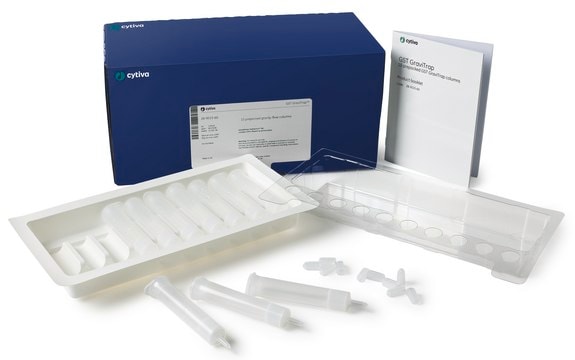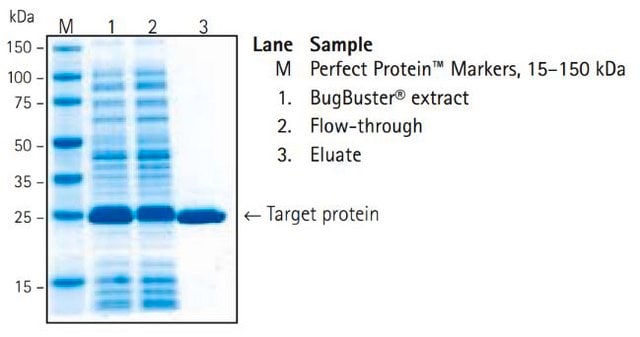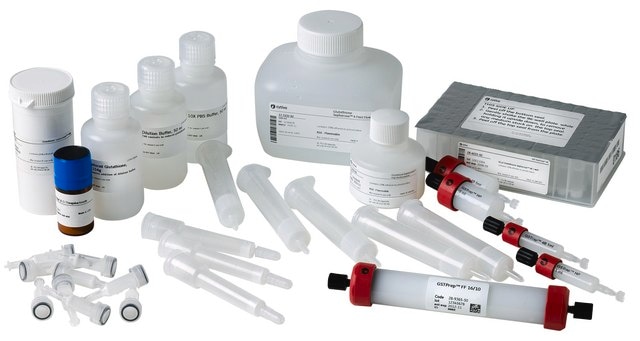GE17-0756-01
Glutathione Sepharose™ 4B
Cytiva 17-0756-01, pack of 10 mL
Synonym(s):
affinity chromatography resin, GST-tagged proteins purification,
About This Item
Recommended Products
ligand
glutathione
packaging
pack of 10 mL
manufacturer/tradename
Cytiva 17-0756-01
matrix
4% agarose
particle size
45-165 μm
average diameter
90 μm
cleaning in place
4-13
working range
4-13
capacity
>25 mg binding capacity (horse liver GST/ml medium)
Related Categories
General description
GST-tagged proteins and other glutathione S-transferases or glutathone-dependent proteins can be purified directly from bacterial lysates using Glutathione Sepharose™ 4B. Proteins are eluted under mild, non-denaturing conditions that preserve protein antigenicity.
Features and Benefits
- High capacity single step purification of recombinant glutathione S-transferase (GST) tagged proteins
- Proteins are eluted under mild, non-denaturing conditions that preserve protein antigenicity and functionality.
Storage and Stability
Analysis Note
Legal Information
Signal Word
Warning
Hazard Statements
Precautionary Statements
Storage Class Code
3 - Flammable liquids
Choose from one of the most recent versions:
Certificates of Analysis (COA)
Sorry, we don't have COAs for this product available online at this time.
If you need assistance, please contact Customer Support.
Already Own This Product?
Find documentation for the products that you have recently purchased in the Document Library.
Customers Also Viewed
Articles
This page addresses common problems associated with the expression and growth of GST-tagged proteins using Cytiva products.
This page shows how to purify GST-tagged proteins using GST SpinTrap™ from Cytiva.
This page describes general considerations for purification of GST-tagged proteins using Cytiva products.
GST-tagged protein yield varies based on protein, host cell, and culture conditions, influencing production.
Protocols
This page describes enzymatic detection of GST-tagged proteins with the GST Detection Module from Cytiva.
This page describes enzymatic detection of GST-tagged proteins with the GST Detection Module from Cytiva.
This page describes enzymatic detection of GST-tagged proteins with the GST Detection Module from Cytiva.
This page describes enzymatic detection of GST-tagged proteins with the GST Detection Module from Cytiva.
Our team of scientists has experience in all areas of research including Life Science, Material Science, Chemical Synthesis, Chromatography, Analytical and many others.
Contact Technical Service















